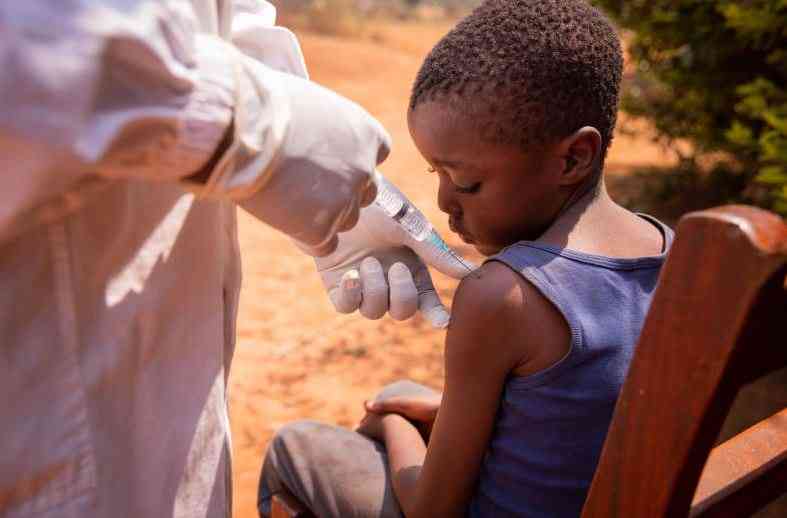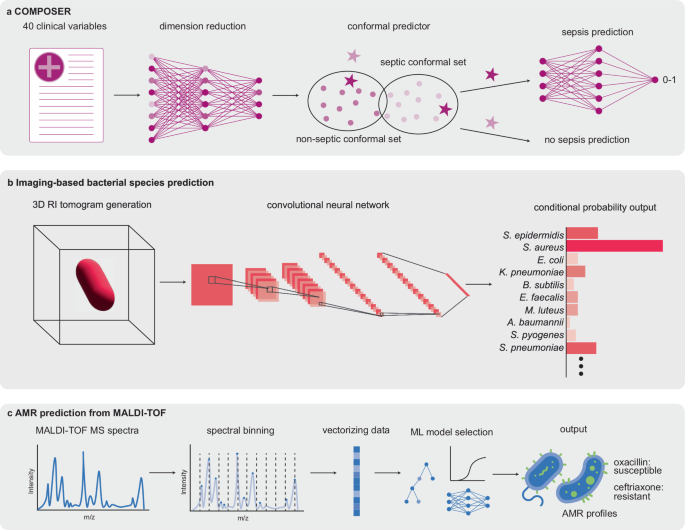Knowledge, attitudes, motivations and expectations regarding antimicrobial use among community members seeking care at the primary healthcare level: a scoping review protocol
Knowledge, attitudes, motivations and expectations regarding antimicrobial use among community members seeking care at the primary healthcare level: a scoping review protocol
Inappropriate antibiotic use in (primary healthcare, PHC) settings fuels antimicrobial resistance (AMR), threatens patient safety and burdens healthcare systems. Patients’ knowledge, attitudes, motivations and expectations play a crucial role in antibiotic use behaviour, especially in low-income and middle-income countries including South Africa. There is a need to ensure measures of antibiotic use, interventions and future guidance reflect cultural, community and demographic issues associated with patient views to reduce inappropriate use of antibiotics and associated AMR. The objective of this scoping review is to identify key themes surrounding knowledge, attitudes, motivations and expectations among patients and community members regarding antimicrobial use in PHC settings especially in low-income and middle-income countries.
This scoping review employs a comprehensive search strategy across multiple electronic databases, including OVID, Medline, PubMed and CINHAL, to identify studies addressing patients or community members seeking care at PHC facilities and exploring key drivers of antimicrobial use. The Covidence web-based platform will be used for literature screening and data extraction and the Critical Appraisal Skills Programme qualitative checklist will assess the quality of qualitative papers. Anticipated results will provide an overview of the current evidence base, enabling identification of knowledge gaps. A narrative synthesis of findings will summarise key themes and patterns in patients’ knowledge, attitudes, motivations and expectations related to antibiotic use across studies while considering methodological diversity and limitations.
Ethics approval is not required for this scoping review. The findings of this scoping review will be disseminated through publication in a peer-reviewed journal, presentation at relevant conferences and workshops, and collaboration with policy-makers and healthcare stakeholders.
http://creativecommons.org/licenses/by-nc/4.0/
This is an open access article distributed in accordance with the Creative Commons Attribution Non Commercial (CC BY-NC 4.0) license, which permits others to distribute, remix, adapt, build upon this work non-commercially, and license their derivative works on different terms, provided the original work is properly cited, appropriate credit is given, any changes made indicated, and the use is non-commercial. See: http://creativecommons.org/licenses/by-nc/4.0/.
If you wish to reuse any or all of this article please use the link below which will take you to the Copyright Clearance Center’s RightsLink service. You will be able to get a quick price and instant permission to reuse the content in many different ways.
Antimicrobial resistance (AMR) is a significant global threat, compromising the effectiveness of crucial treatments against bacterial infections and burdening healthcare systems worldwide.1–3 In 2019, bacterial AMR contributed to an estimated 4.95 million deaths, with 1.27 million directly attributed to AMR.4 Geographically, western sub-Saharan Africa experiences particularly high death rates from AMR, with 27.3 deaths per 100 000 individuals.4 Lower respiratory infections, linked to AMR, accounted for over 1.5 million deaths in 2019, underscoring the severity of the problem.4 Alongside this, AMR also increases morbidity5 and unless addressed, AMR is poised to become the next global pandemic.6
In response to the escalating threat of AMR, the WHO has initiated an appreciable number of activities. These include the development of the Global Action Plan to reduce AMR, translating into National Action Plans (NAPs).7 In low-income and middle-income countries (LMICs), including South Africa, the burden of AMR is exacerbated by inappropriate antibiotic use among patients across healthcare settings including hospital care and ambulatory or primary care.7–12 Limited access to healthcare and essential resources further compounds the risks associated with inappropriate antibiotic use.7 Recently, the WHO introduced the AWaRe list of Access, Watch and Reserve antibiotics progressing into evidence-based treatment recommendations for infections seen in ambulatory care, including non-antibiotic options for self-limiting conditions, to reduce AMR.13 14 The need to encourage appropriate prescribing and dispensing of antibiotics, including reducing the use of Watch and Reserve antibiotics, has been highlighted in the recent goals emanating from the United Nations General Assembly on AMR.15
In South Africa, deaths related to AMR currently surpass those resulting from self-harm, violence, transport accidents, maternal and neonatal disorders, chronic respiratory illnesses, and enteric infections.16 In 2019 alone, there were 9500 deaths attributed to AMR, with an additional 39 000 associated deaths.16 To address the growing AMR crisis, the South African government had earlier implemented the Antimicrobial Resistance Strategy Framework in 2014, followed by the introduction of its NAP to reduce AMR in subsequent years.7 17–19 While the focus of AMR studies has often been on hospital settings, primary healthcare (PHC) settings in LMICs play a pivotal role in the misuse of antibiotics where antibiotics can account for up to 95% of total antibiotic use among humans.20 Patient-driven factors including the demand for antibiotics are prevalent in LMICs often for self-limiting conditions such as upper respiratory tract infections.7 11 21–24 The purchasing of antibiotics without a prescription in certain situations especially among independent pharmacies, contributes significantly to the inappropriate use of antimicrobials across LMICs, exacerbating the problem of AMR.9 25 26 Consequently, understanding these dynamics in South Africa, as an exemplar of LMIC, provides a valuable case study for similar challenges faced across LMICs.7 11 12 26 27 However, recognising that the cultural, social and healthcare contexts in other regions may vary, addressing these differences is critical to ensure findings from this review contribute broadly to the global evidence base. Alongside this, antimicrobial stewardship (AMS) initiatives have been introduced in healthcare sectors across the country with an urgency required to tackle these issues comprehensively.7
Chigome et al7 outlined recommendations aimed at reducing inappropriate antibiotic prescribing among key stakeholder groups in ambulatory care in South Africa to reduce AMR. These included collaboration between the Ministry of Health, private insurers, universities, healthcare professional (HCP) associations, pharmaceutical companies and the private sector. Activities range from routine monitoring of prescribing practices to enhancing patient education through targeted campaigns and improved communication channels. Integrating these recommendations into existing antimicrobial stewardship programmes (ASPs) could strengthen surveillance systems, refine educational initiatives and promote responsible antibiotic use.7 Similar strategies have been proposed in other LMICs including Tanzania and Pakistan.12 28–30 Engaging with healthcare providers and patient associations is crucial for adopting best practices and dispel misconceptions around antibiotics and AMR. This includes addressing concerns with the language used and understanding surrounding antibiotics and AMR where these exist.31–34
Measurement tools for evaluating antimicrobial use in LMICs have primarily focused on hospitals or specific demographic groups, relying heavily on healthcare provider data.7 8 However, metrics at the PHC level often overlook crucial factors including patient knowledge and attitudes towards antibiotics as well as self-medication practices, leading to inaccurate assessment and hindering effective interventions.8 11 35 Despite the growing awareness that a substantial portion of antibiotic consumption within LMICs occurs within PHC settings, patients’ roles in addressing antibiotic prescribing have often been overlooked.7 11 20 Concerns persist regarding patients’ knowledge about antibiotics, AMR and ASPs, particularly in LMICs including South Africa.7 9 11 31 Targeted research is essential to understand and address these concerns and improve the evidence base in South Africa.
Existing reviews on antibiotic use among patients in primary care settings in LMICs have primarily focused on broader themes such as healthcare provider prescribing behaviours, the impact of ASPs and patient-related factors influencing antibiotic use. For instance, reviews by Chetty et al36 and Iwu-Jaja et al37 have explored prescribing patterns and the role of educational interventions in promoting responsible antibiotic use. However, these reviews have largely concentrated on healthcare provider perspectives and hospital-based interventions, with limited attention to patients’ knowledge, attitudes, motivations and expectations in PHC settings. Additionally, while studies have addressed global trends, there is a relative lack of region-specific evidence, particularly in Africa including South Africa, despite the high burden of AMR in these areas. This highlights the need for a focused exploration of patient-related factors in PHC settings, which this scoping review aims to address.
Inappropriate antibiotic use in South African PHC settings is influenced by patient-driven demand, misconceptions about antibiotics, self-diagnosis and pressure on healthcare providers.7 38 This includes the purchasing of antibiotics without a prescription and the availability and opportunity to obtain antibiotics through self-purchase.9 26 Studies have shown high rates of antibiotic purchasing without a prescription across Africa, with some countries reporting 100% of community pharmacies dispensing antibiotics without a prescription.11 Moreover, knowledge gaps among patients contribute to this issue, as many patients across LMICs, including those in South Africa, lack understanding of the appropriate use of antibiotics, the risks associated with AMR and alternative treatment options.7 11 26 39–42 These factors underscore the need for comprehensive interventions to promote judicious antibiotic prescribing and dispensing to combat AMR.
Understanding patients’ perspectives and behaviours related to antibiotic use is crucial for effective interventions in PHC settings. Teague et al43 identified significant knowledge gaps among HCPs, especially nurses, regarding AMS and AMR in South Africa, raising concerns about accurate patient education. Consequently, interventions targeting HCP training on antibiotic use and patient counselling may be necessary to reduce inappropriate use. Evaluating such interventions requires validated tools assessing patients’ knowledge, attitudes, motivations and expectations regarding antimicrobial use. Recognising the unique role of patients in driving antibiotic use patterns, especially in PHC, this scoping review aims to identify and synthesise themes related to knowledge, attitudes, motivations and expectations about antimicrobial use among PHC users across LMICs. This scoping review will identify existing key themes of knowledge, attitudes, motivations and expectations regarding antimicrobial use among PHC users, particularly in LMICs. Using a scoping review for this purpose is considered appropriate as a scoping review is known for its effectiveness in comprehensive exploration of literature and identifying key knowledge gaps.
While this scoping review aims to capture evidence from LMICs, its long-term goal is to inform the development of a measurement tool tailored to South African communities as a starting point. We believe this tool will allow for a better assessment of patient-related factors contributing to antibiotic use, enhancing efforts to reduce inappropriate practices. By exploring lessons from other LMICs and contextualising them within South Africa’s unique challenges, the review seeks to balance the global and local perspectives, ensuring relevance across different cultural and healthcare contexts seen across LMICs. This scoping review will also complement a recent narrative review of prescribing patterns and quality indicators in private and public PHC systems in South Africa7 by providing a comprehensive synthesis of patients’ knowledge, attitudes, motivations and expectations related to antibiotic use. It will add insights into how patients perceive and engage with antibiotics, which is crucial for understanding the broader context of antimicrobial utilisation and adherence, building on recent pilot studies in South Africa.44 45 Additionally, this review aims to address gaps identified in previous scoping reviews, including those conducted by Chetty et al36 and Iwu-Jaja et al37 by exploring additional AMS interventions beyond prescription audits and education impact. By exploring lessons from other LMICs and contextualising them within South Africa’s unique challenges, the findings from this review aim to contribute to a broader understanding of AMR while offering region-specific insights that can inform interventions.
While this review seeks to capture evidence across LMICs, a key emphasis will be placed on understanding regional variations, particularly in Africa and South Africa. Should the preliminary findings reveal a substantial lack of evidence from these regions, the scope may be refined to prioritise South Africa or sub-Saharan Africa, ensuring that the review remains contextually relevant and impactful. A preliminary search of PubMed, MEDLINE, CINHAL and JBI Evidence Synthesis was conducted and no current or in-progress scoping reviews or systematic reviews on the topic were identified.
What are the key themes of knowledge, attitudes, motivations and expectations among community members regarding antimicrobial use in PHC settings, with a focus on identifying insights relevant to LMICs?
Framework for defining scope
This scoping review employs the SPICE framework (Setting, Population, Intervention/Phenomenon of interest, Comparison, and Evaluation)46 to define its scope:
Participants
This review will consider studies involving patients and community members seeking care at the PHC level across all income settings, including LMICs and HICs.
Concept
This review will consider studies that explore patients’ knowledge, attitudes, motivations and expectations surrounding antimicrobial use in PHC settings. This includes understanding patient awareness, beliefs, decision-making processes and concerns regarding antimicrobial use in the context of infectious disease treatment. Insights from non-LMIC settings will be included to provide a comparative understanding and value-added perspective that could inform interventions in LMICs.
Context
Studies must focus on antimicrobial use within PHC settings globally. This review will incorporate studies from diverse settings, emphasising transferable lessons relevant to LMICs and South Africa while valuing broader insights from HICs.
Types of sources
This scoping review will include studies employing both qualitative and quantitative approaches to explore patients’ knowledge, attitudes, motivations and expectations towards antimicrobial use. Specifically, qualitative research designs, such as phenomenology, grounded theory, ethnography, qualitative description and action research, will be considered. Additionally, studies employing a descriptive observational design, including case series, individual case reports and descriptive cross-sectional studies focusing on patients’ perspectives, will be included. Systematic reviews meeting the inclusion criteria will be considered, contingent on their relevance to the research question.
The following types of studies will be excluded from this scoping review:
The proposed scoping review will be conducted in accordance with the JBI methodology for scoping reviews47 and in line with the Preferred Reporting Items for Systematic Reviews and Meta-Analyses extension for Scoping Reviews (PRISMA).48
This scoping review is planned to begin on 1 February 2024 and is expected to be completed by 28 June 2024. The timeline includes conducting the literature search, screening and selection of studies, data extraction, analysis and manuscript preparation.
This scoping review has been registered with the Open Science Framework.
Review registration number: Open Science Framework https://osf.io/2zxhv/?view_only=a78c644446fc4fe88a047093080294d2
The search strategy (see online supplemental appendix 1) will aim to locate all published primary studies and reviews relevant to the review question. The following steps will be undertaken to ensure sensitivity and comprehensiveness:
Search terms: Search terms will include variations and synonyms for key concepts, such as “antibiotic”, “antimicrobial”, “antimicrobial resistance”, “knowledge,” “attitudes,” “primary healthcare,” “patients” and “community members.” Boolean operators (eg, AND/OR) will combine terms.
Database selection: Searches will be conducted in databases including OVID, MEDLINE, PubMed and CINAHL.
Controlled vocabulary: Relevant subject headings such as MeSH terms (eg, “Antimicrobial Stewardship” “Antibiotic Resistance”) will be used to enhance precision.
Inclusion period: Articles from database inception to the present will be included to capture historical and current evidence.
Language: Articles published in English will be included to ensure quality and comparability.
Following the search, all identified records will be collated and uploaded into the Covidence web-based data extraction platform for review management and screening49 and duplicates will be removed. The remaining title and abstracts will subsequently be screened independently by two reviewers (NR and SMC) for assessment against predefined inclusion criteria for the review. Full text of potentially relevant articles will be retrieved, assessed in detail against the inclusion criteria by two independent reviewers (NR and SMC), and eligible articles will be imported into the Covidence web-based data extraction platform.49 Reasons for exclusion of full text that do not meet the inclusion criteria will be recorded and reported accordingly. All disagreements between reviewers at each stage of the selection process will be resolved through discussion or consensus, or intervention from a third reviewer (EBT). The results of the search will be reported in the final scoping review and presented in a PRISMA flow diagram.48
Data will be extracted from each article independently by two reviewers (NR and SMC) using a data extraction tool developed and customised within the Covidence platform for this study.49 The tool captures details such as population, concept, context, methods (including specific tools or measures used) and key findings relevant to the review question. The extraction tool has been designed to accommodate diverse study types, including qualitative, quantitative and systematic reviews. A draft of the tool is provided (see online supplemental appendix II). This tool has been further modified to include key themes derived from the results, along with their primary subthemes, study strengths, limitations and concluding remarks or key messages. Qualitative studies will be appraised using the Critical Appraisal Skills Programme qualitative checklist, which evaluates methodological rigour, clarity of findings and relevance to the research question.50 Details of the study methods will be provided in the full scoping review. All disagreements will be resolved through discussion or with a third reviewer (EBT). Authors of the sourced articles will be contacted to request missing or additional data/information, where required.
All data will be analysed through a narrative synthesis, summarising key themes and patterns in patients’ knowledge, attitudes, motivations and expectations related to antibiotic use across the included studies. The analysis will also consider the methodological diversity and limitations of the included studies.
The anticipated results of the scoping review will encompass both qualitative and quantitative data, providing a comprehensive overview of the available literature. These results will investigate the key themes of knowledge, attitudes, motivations and expectations concerning antimicrobial use among community members seeking care at the PHC level. These findings will be synthesised and presented through summary narratives, along with the use of visual aids such as evidence ‘maps’ and tabular presentations, to provide a clear and accessible overview of the findings and to facilitate the identification of key themes and knowledge gaps within the reviewed literature. The findings of this scoping review will be disseminated through publication in a peer-reviewed journal, presentation at relevant conferences and workshops, and collaboration with policy-makers and healthcare stakeholders.
Ethical approval is not required for this scoping review, as it involves the synthesis of publicly available data without any primary data collection or involvement of human participants.
The findings of this scoping review will be disseminated through publication in a peer-reviewed journal and presentations at academic and professional conferences.
Not applicable.
This scoping review will contribute towards a Doctor of Philosophy in Pharmacy for NR.











